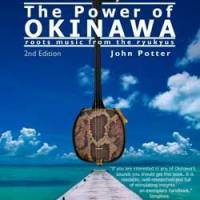Of all the varieties of folk-music in Japan, Okinawa's is arguably the most vibrant and self-evolving. Astute listeners soon realize that each island group in the region has its own distinct microculture and musical traditions.
The Power of Okinawa, by John Potter
255 pages
Ryuei Kikaku, Nonfiction.
One measure of the success of "world music" genres is the degree to which they engender interest among overseas musicians. The branching styles, instrument combinations and sheer creativity of Okinawan music have inspired collaborations with such respected musicians as the jazz pianist Geoffrey Keezer, fiddle player Nollaig Casey, guitarist Bob Brozman and, most recently, the Senegalese kora master Falaye Sakho.
"The Power of Okinawa," by English music journalist John Potter is the most authoritative resource on the subject. Potter lives in Okinawa, frequents the music clubs, listens and reviews new releases and, perhaps more importantly, gets up close and critical with the musicians themselves.
Potter covers a good deal of ground in the second edition, explaining the origins of Okinawan music, providing profiles of the founders of musical forms, their successors and innovators. His interviews highlight the political discontent that surfaces in some of the music, but also show its function as entertainment and, above all, the role it plays in the everyday lives of the islanders.
Read archived reviews of Japanese classics at jtimes.jp/essential.



